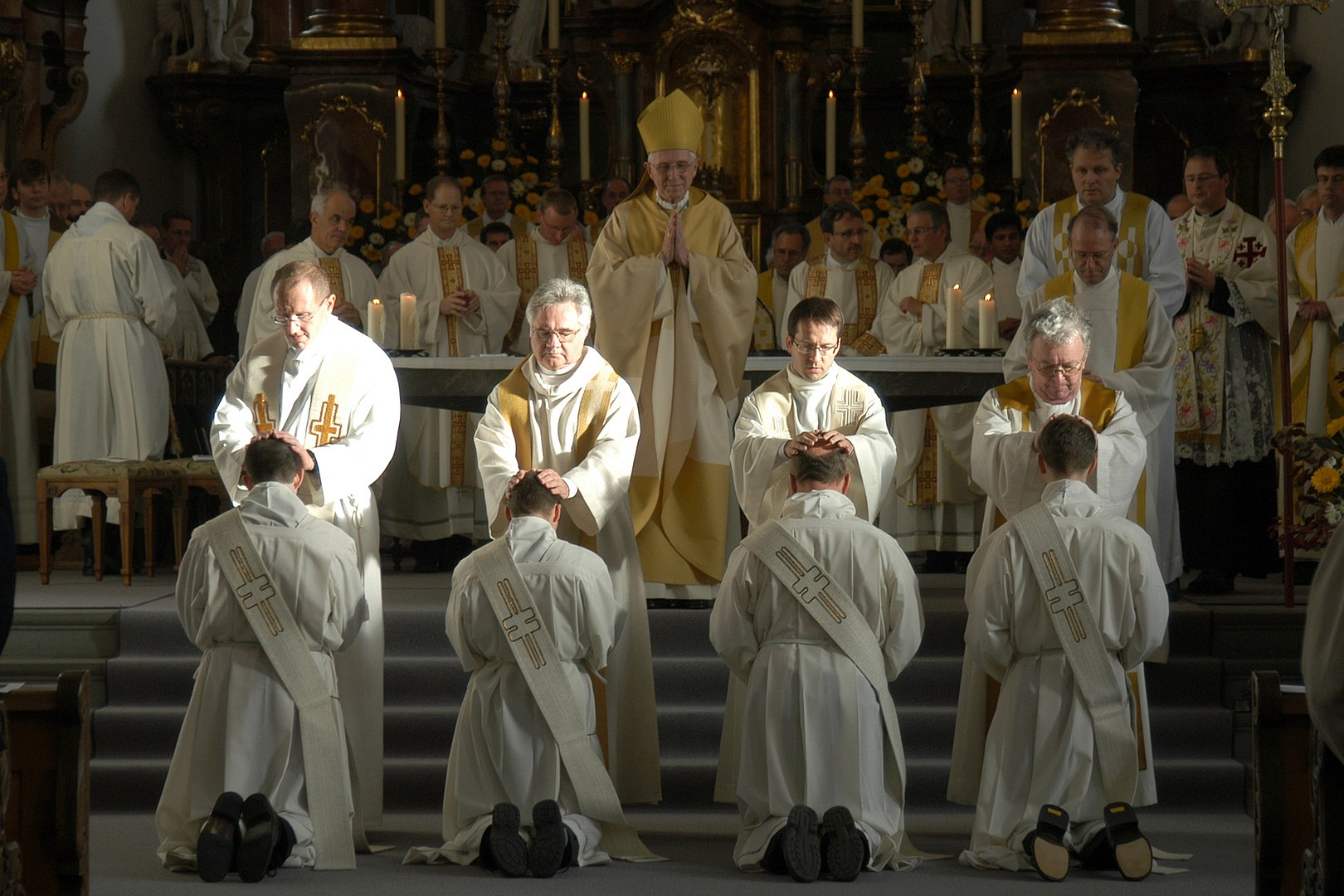Why the Vatican is debating priestly celibacy in the Amazon
The ordination of men into the priesthood of the Roman Catholic church involves taking on the vow of celibacy. Photo by Matthias Ulrich via Wikipedia.
NEW YORK — A shortage of priests in the Amazon has resurfaced discussion within the Catholic church over the clergy’s vow of celibacy and when it’s permissible to consider married men for ordination. The conversation is a hot topic on the agenda at this week’s Synod of Bishops in Rome.
The meeting of church clergy was formed to address the needs of the millions of people in the Amazon, defined by the council as parts of Bolivia, Brazil, Colombia, Ecuador, French Guiana, Guyana, Peru, Venezuela and Suriname.
The remoteness of the Amazon has resulted in a rainforest run dry of priests, with many indigenous Catholics only having access to a priest as little as twice a year. Without access to a priest, parishioners are left without the essentials of the Catholic life. Priests celebrate mass and administer sacraments — such as confession and Holy Communion — which are “efficacious signs of grace, instituted by Christ and entrusted to the church, by which divine life is dispensed to us,” according to the Catechism of the Catholic Church.
So what’s the issue with having married priests?
For the church, the largest conflict is that priests take a vow of celibacy. Though not a requirement for priesthood in Sacred Scripture, Catholic tradition has established that priests take a vow of celibacy and forego marriage, family and sex for a life devoted to Christ. Celibacy was first mandated for priesthood at the Council of Elvira in the fourth century.
Though history tells how the vow was at times lazily enforced, it is officially a part of the Code of Canon Law No. 277, which states that priests are bound to celibacy “for the sake of the kingdom of heaven.” The Church calls the vow a “special gift of God” that allows sacred ministers to draw closer to Christ and dedicate themselves more wholly and effectively to God and those whom they serve.
Although it is valued as a most important vow for those entering holy orders, celibacy for priests is a “discipline” of the church — not a “dogma” or “doctrine.” Disciplines can be changed, whereas dogmas and doctrines can’t be changed.
Despite celibacy remaining a church discipline, married clergy within the Catholic faith is nothing new. There are reportedly more than 100 married Catholic priests in the United States, most of whom are former Anglican or Episcopal priests approved by the church to continue both marriage and ministry after their conversion to Roman Catholicism.
Previous efforts and criticisms
Rome has halted several efforts in the past that would have allowed for the ordination of viri probati or “men of proven virtue,” a standard term used in the church for married candidates to holy orders. At the 2005 Synod on the Eucharist, the importance of a celibate priesthood was reaffirmed, overriding requests from bishops concerned over the priest-to-parish ratio in remote locations of the southern hemisphere.
There have been some both outside and within the church who believe the vow of celibacy to be unnatural. Critics of the vow argue that long-term suppression of sexual activity has contributed to clergy sexual abuse scandals that have plagued the church for the past few decades.
Those in favor of the vow, however, cite evidence that sexual abuse of minors is not a sin exclusive to Catholic clergyman. They argue that sexual frustration or abstinence does not naturally result in pedophilia, nor does sexual abuse of children equate to sexual attraction or preferences to children.
The pope’s position on the issue
This past January, Pope Francis told reporters that the decision to make celibacy optional for priests was not his to make, and that he could not stand “before God with this decision.” The pontiff reportedly quoted Pope Paul VI, saying, “I would prefer to give my life before changing the law of celibacy.”
However, the pope remained open to the idea of ordaining older, married men in remote locations where there is “pastoral necessity” and lack of access to the Eucharist, as the National Catholic Reporter revealed earlier this year.
Though talk on whether allowing more married clergy would strengthen the isolated Catholic population or weaken the church’s discipline will be in effect, those preparing the synod’s agenda have stressed that the main focus will be on the distinctive environmental dangers those in the Amazon are currently facing.
Matthew Hendley is a student at the University of Mississippi studying journalism in New York this semester as part of the NYCJ program at The King’s College. He is interning this semester at CBS’s 60 Minutes.

